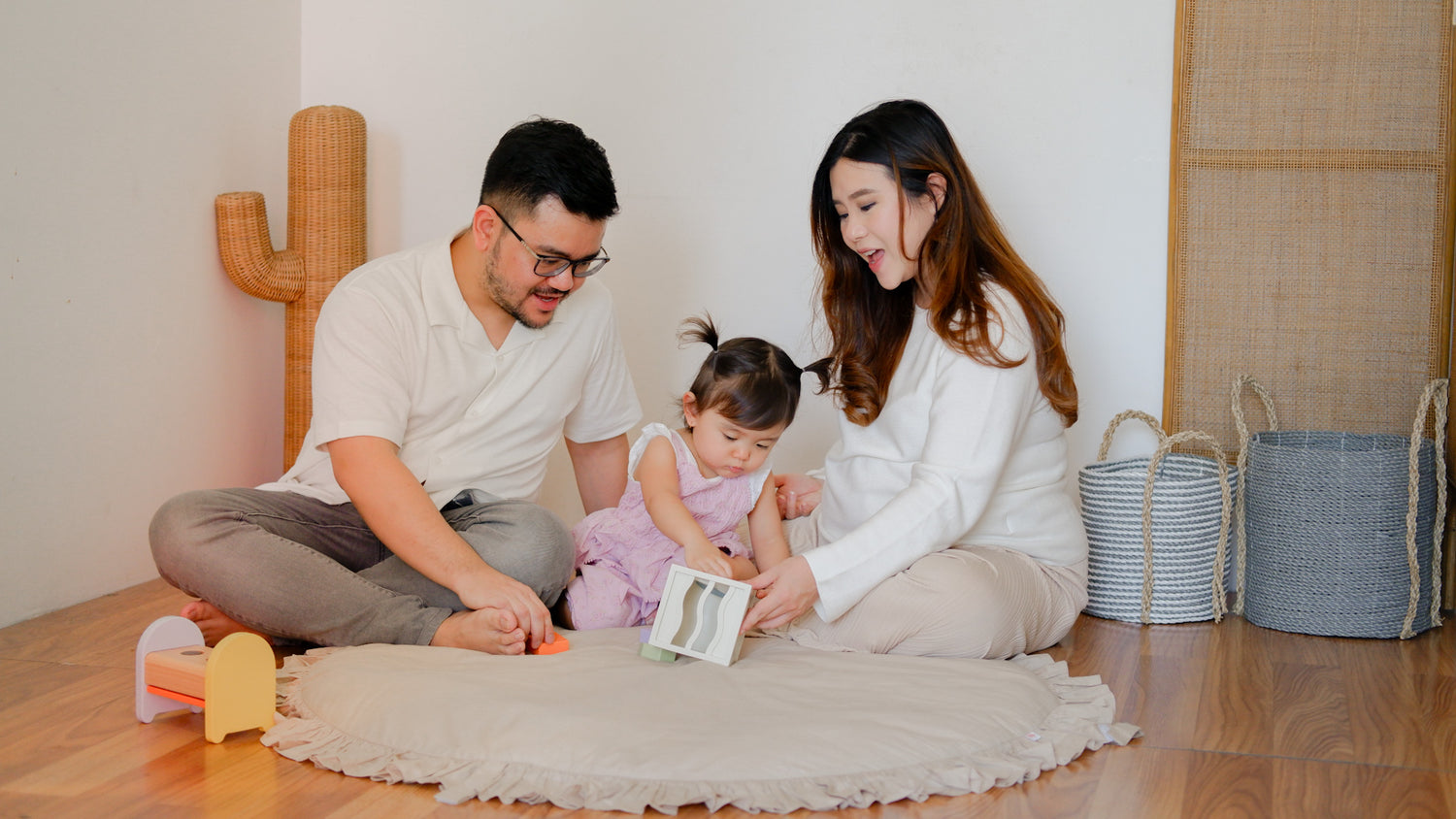Infant brains undergo rapid development from 0 to 3 years of age, growing from 25% of an adult brain size at birth to around 80% by age 3. This is known as the "Golden Period of Brain Development". To make the most of this time, experts recommend spending plenty of time bonding and playing with your baby.
-
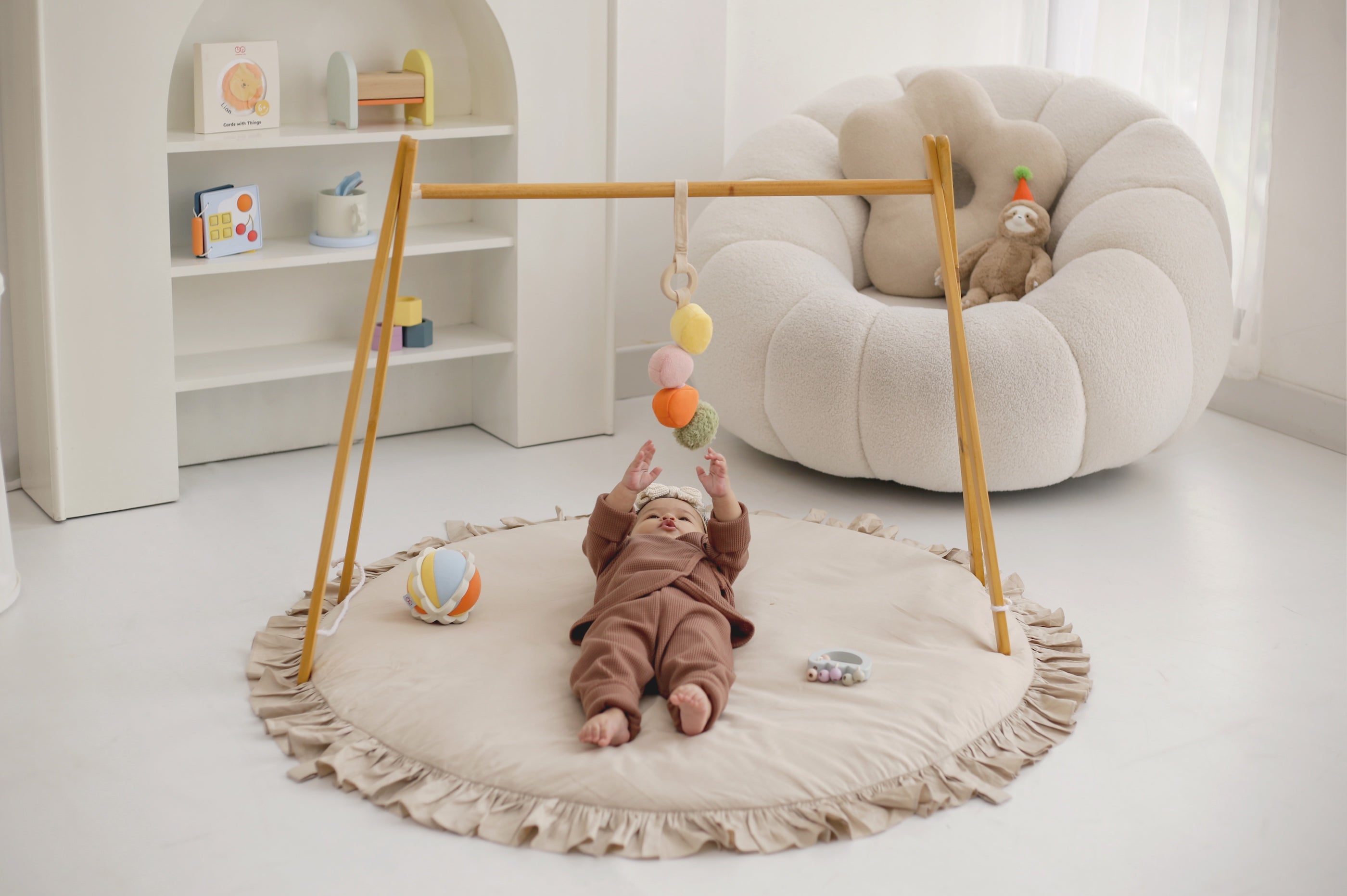
0-3 months: Sensory Exploration
Best starting point for 0-3 monthsLearning objectives and play ideas:
Engage in visual and auditory stimulation activities with your newborn with hanging mobiles. Allow them to stretch out on a playmat, and attempt brief tummy time sessions to get them used to being on their tummy.Recommended playthings:
- High-contrast toys: Black and white cards and soft cloth books for visual and auditory stimulation
- Grasping toys: Rattles for practicing their grasping reflex and auditory stimulation
- Play mat and play gym: Allow your baby to play on their back and tummy
- Hanging mobiles: Hang high-contrast and interesting mobiles from your baby's play gym
-
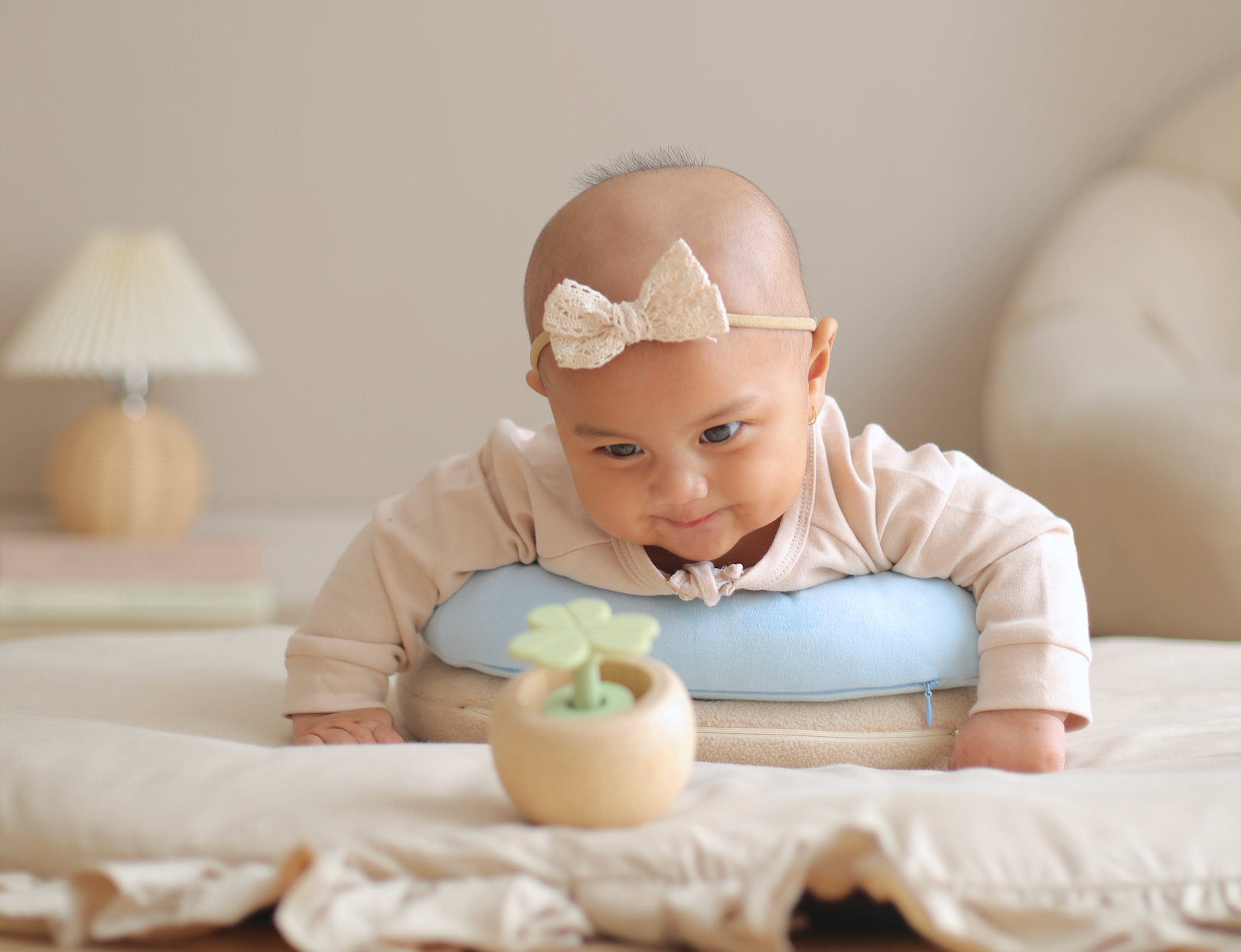
3-6 months: Tummy Time Practice
Best starting point for 3-6 monthsLearning objectives and play ideas:
You can start tummy time as soon as your child is born. The goal of tummy time is to help babies strengthen their neck, arms and core, and prepare them for sitting and crawling. Do activities during tummy time to keep them engaged.
Recommended playthings:- Teethers: Silicone teethers soothe your baby's gums and promote oral-motor development
- Support pillows: Tummy time pillows support your baby's body, making tummy time more enjoyable
- Sensory toys: Hands-on sensory toys with textures and sounds are great for tummy time
-
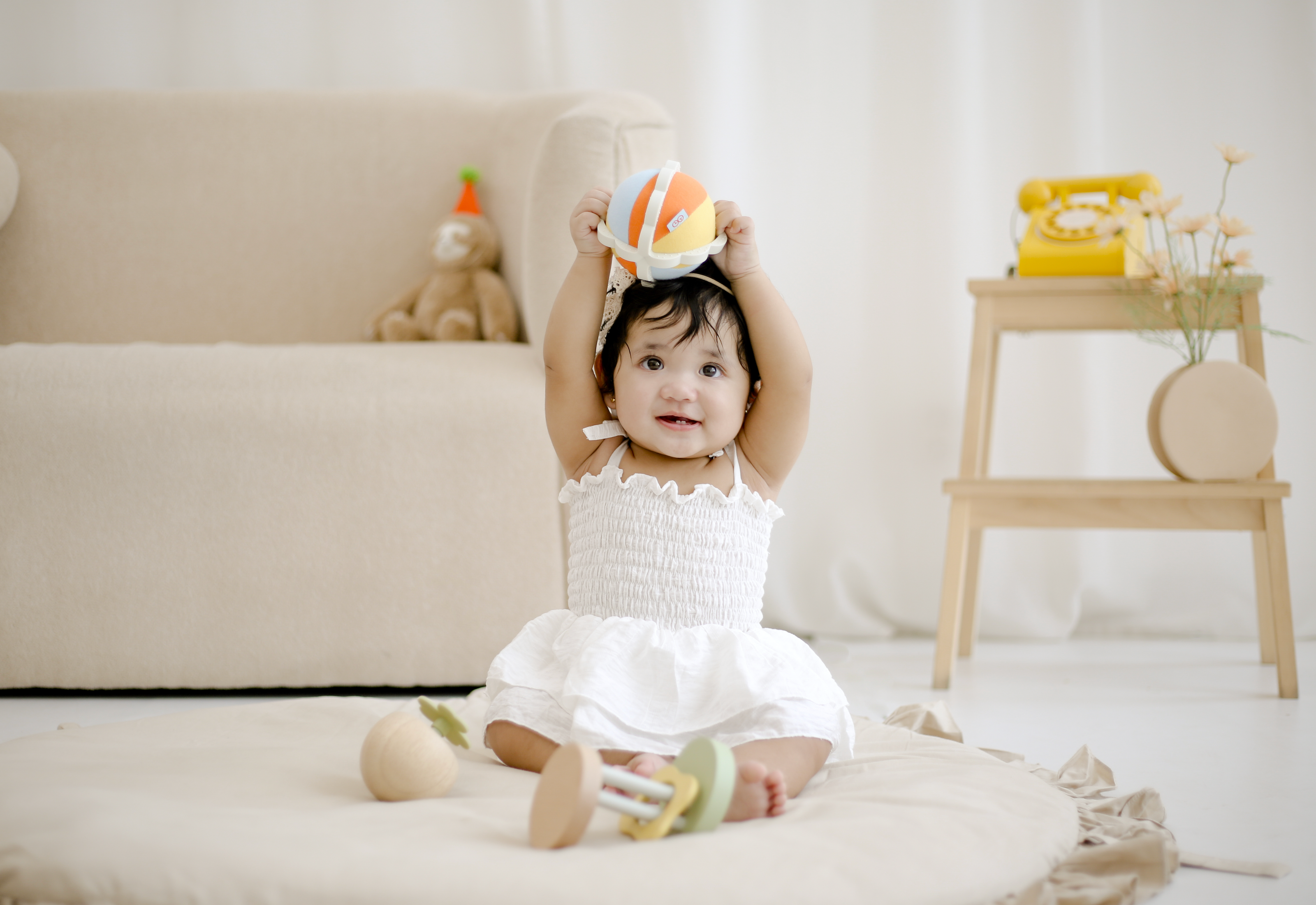
6-9 months: Exploration and Movement
Best starting point for 6-9 monthsLearning objectives and play ideas:
Encourage your baby to explore new forms of movement, such as crawling, rolling, and sitting. As your baby discovers these newfound abilities, it will expand the range of their movement, allowing them to investigate the world around them in more dynamic ways.
Recommended playthings:- Sensory blocks: Wooden blocks with fun elements to help practice fine-motor skills and hand-eye coordination.
- Activity book: Providing sensory stimulation, promoting motor skill and cognitive growth, and facilitating parent-child interaction.
- Fine motor toys: Early lessons in object containment and permanence. Practice reaching, grasping, releasing, and chasing different elements.
- Learning Cards: Feature illustrations of common objects to support baby's early language and object recognition development.
-
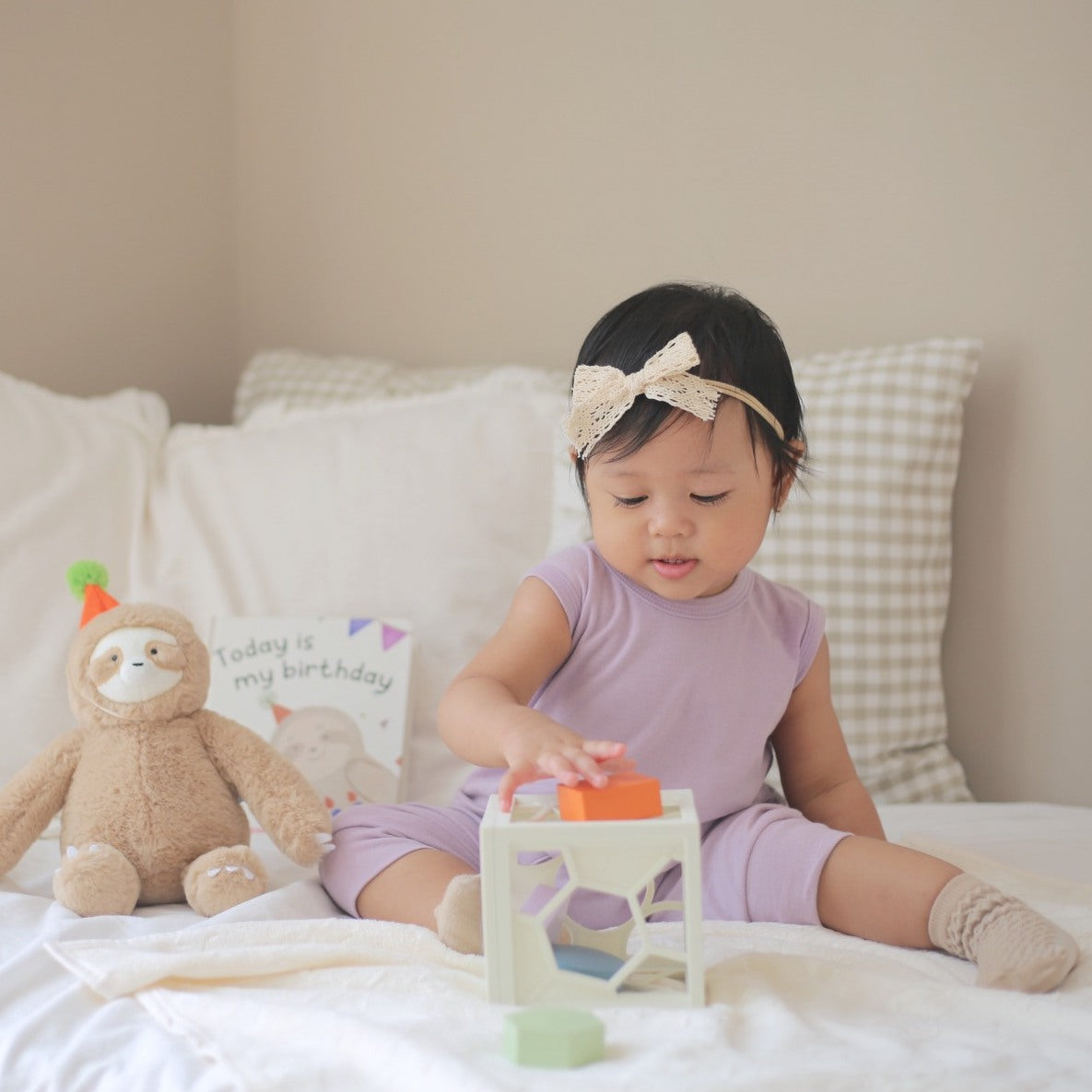
9-12 months: Fostering cognitive and social-emotional growth
Best starting point for 9-12 monthsLearning objectives and play ideas:
Cognitive and social-emotional connections can be fostered through responsive interactions and engaging toys. Introduce emotions and their corresponding facial expressions, and use fine motor toys to practice grasping skills. Use simple toys to develop problem-solving skills through trial and error to promote cognitive development.
Recommended playthings:- Soft blocks or stacking toys: Encourage grasping, stacking, and knocking down to promote fine motor skills and spatial awareness.
- Nesting cups or containers: Introduce the concept of containment and teach babies how objects fit inside each other.
- Shape sorters or puzzles: Enhance problem-solving skills and hand-eye coordination by manipulating shapes and fitting them into corresponding holes.
- Board books: Introduce babies to the world of reading by providing sturdy books with colorful pictures and simple text. Choose books with interactive features like touch-and-feel textures or lift-the-flap elements to engage their senses.
-
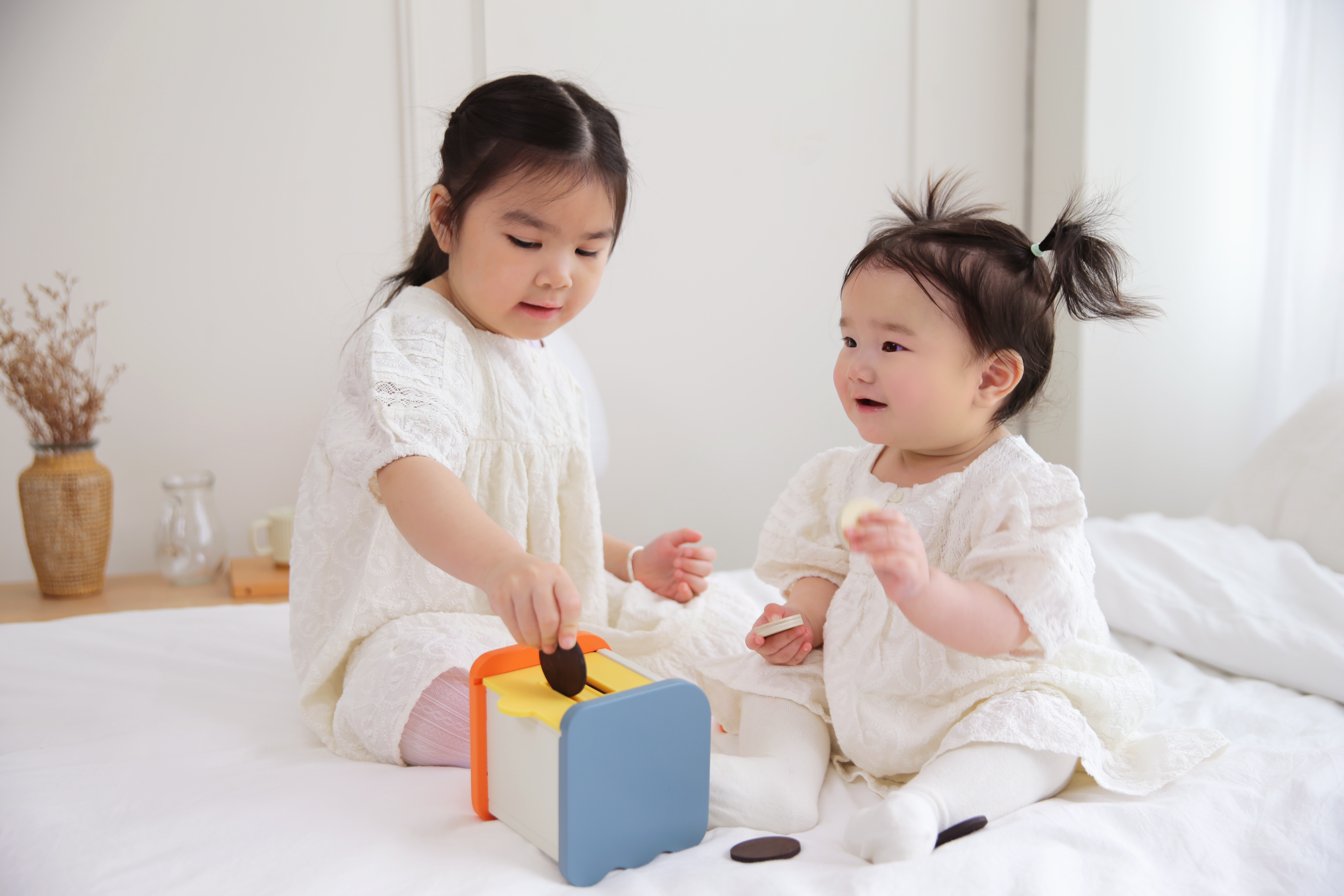
12-18 months: Enhancing fine-motor and language development
Best starting point for 12-18 monthsLearning objectives and play ideas:
At this stage, your baby will be mastering their pincer grasp and improving their hand-eye coordination. Provide toys that allow your baby to poke, push, pull, and tinker with their fingers. To encourage language development, read aloud, sing songs, and engage in responsive play. These interactive experiences give babies opportunities to vocalize.
Recommended playthings:- Puzzles: Introduce simple puzzles with different size/color pieces to enhance problem-solving abilities and cognitive development.
- Picture books: Read plenty of picture books to get your child used to hearing sentences. Give them the opportunity to point at objects inside the book.
- Posting toys: Practice posting and object manipulation skills with toys like a Montessori 'coin box' to build focus and persistence in completing activities.
- Containment toys: Provide plenty of toys that your baby can open and close, and let them hide and find objects to learn about containment and object permanence.
-
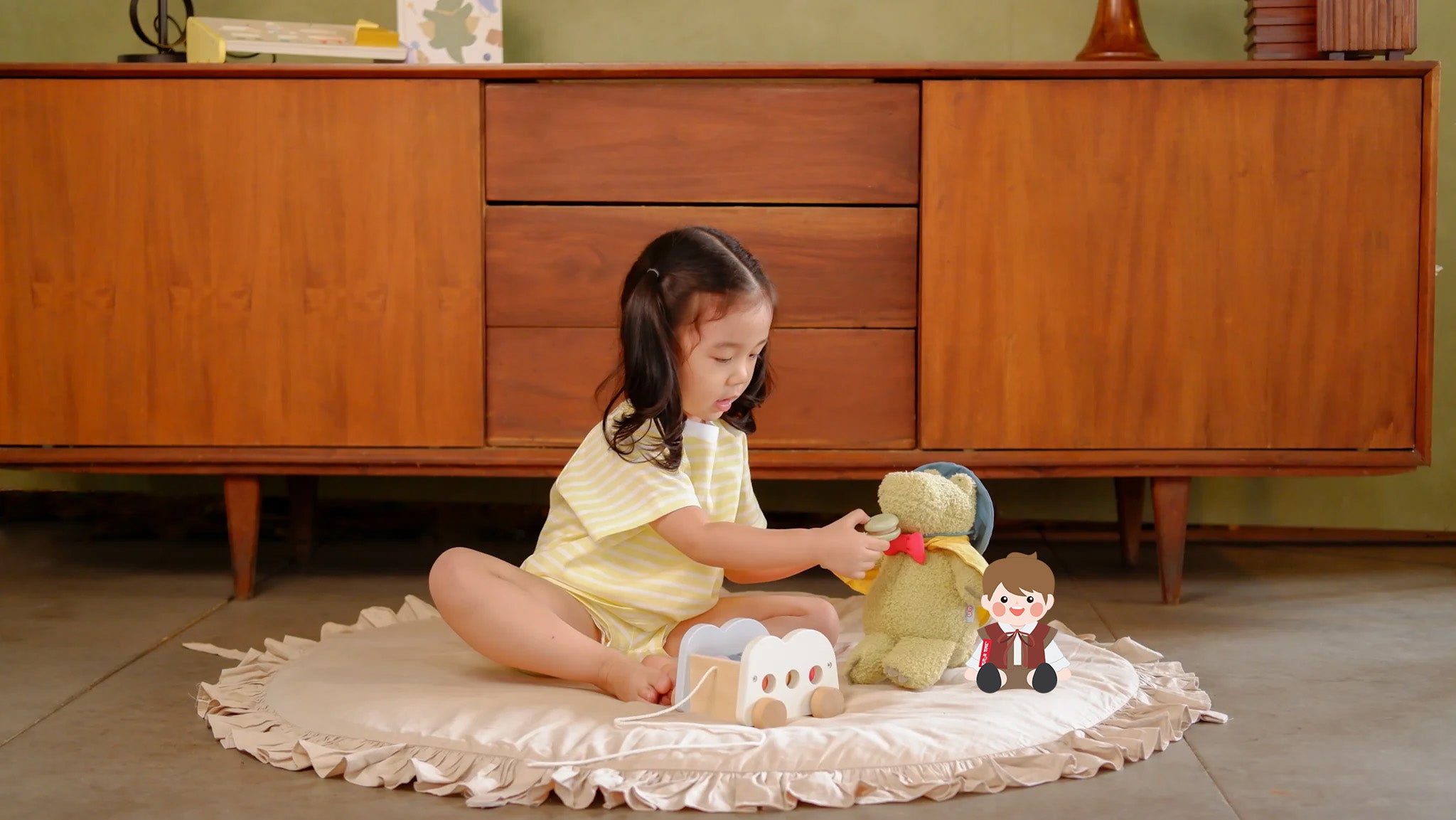
18-24 months: Learn about colors, master balancing and walking, and try imaginative play
Best starting point for 18-24 monthsLearning objectives and play ideas:
Use books and toys to teach your child to identify and name colors. Use pull and push toys to encourage balancing while walking. Engage in simple conversations such as asking questions after reading stories to develop language skills. Use pretend play materials to engage in different roles and teach them to identify emotions by labeling how they feel, like "you look frustrated".
Recommended playthings:- Coloring and painting tools: Support fine motor development while learning about different colors through coloring and painting.
- Picture cards: Use picture cards with clear, vivid images to encourage language development and expand vocabulary. Point to the pictures, name the objects, and engage in interactive conversations.
- Pretend play sets: Provide opportunities for your child to engage in imaginative play, such as dollhouses, tea parties, kitchen sets, or occupation-themed sets.
- Building blocks: Use building blocks to train fine motor skills and hand-eye coordination.
Let's get started
-
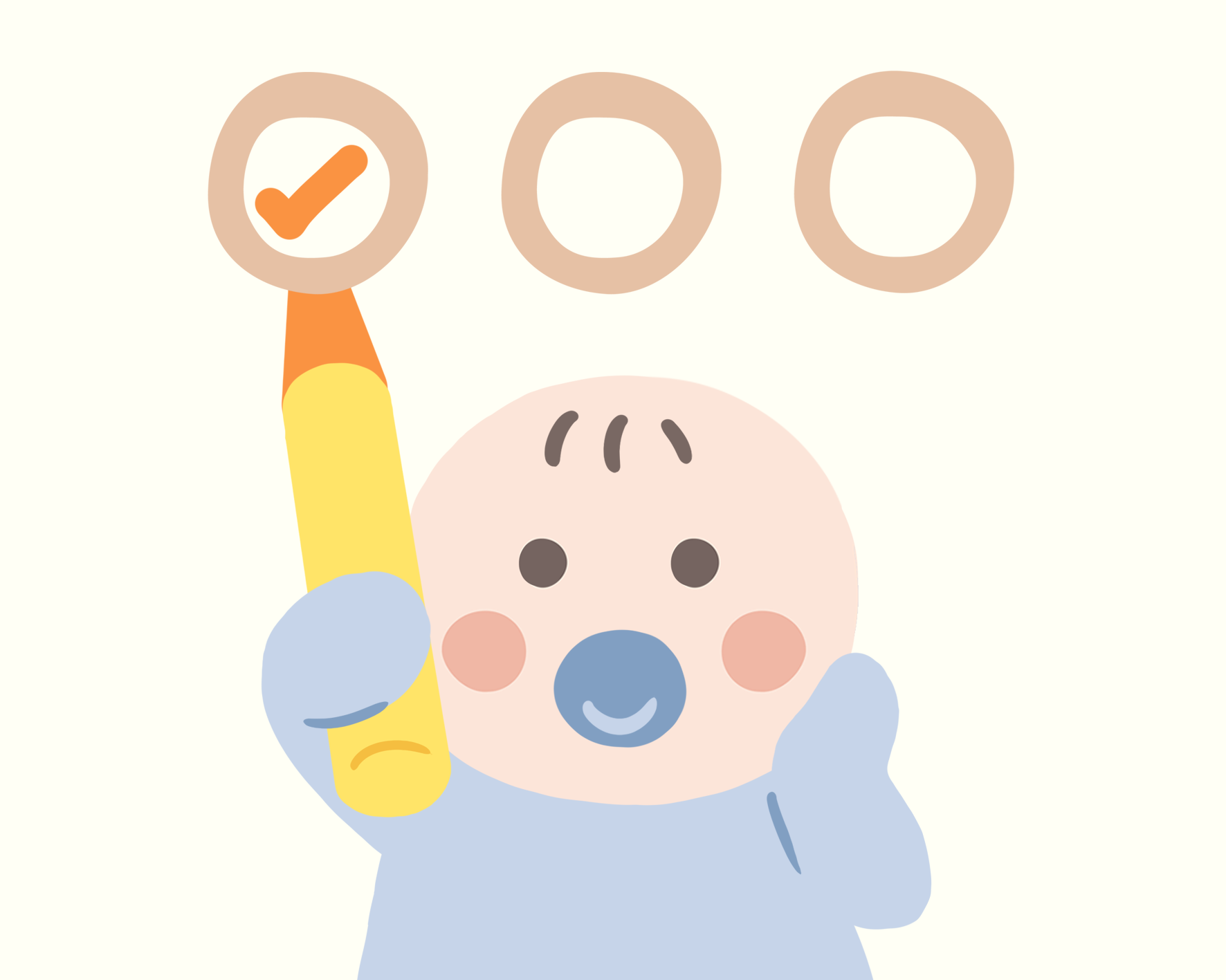
Unsure where to start in our program?
Take a short quiz -
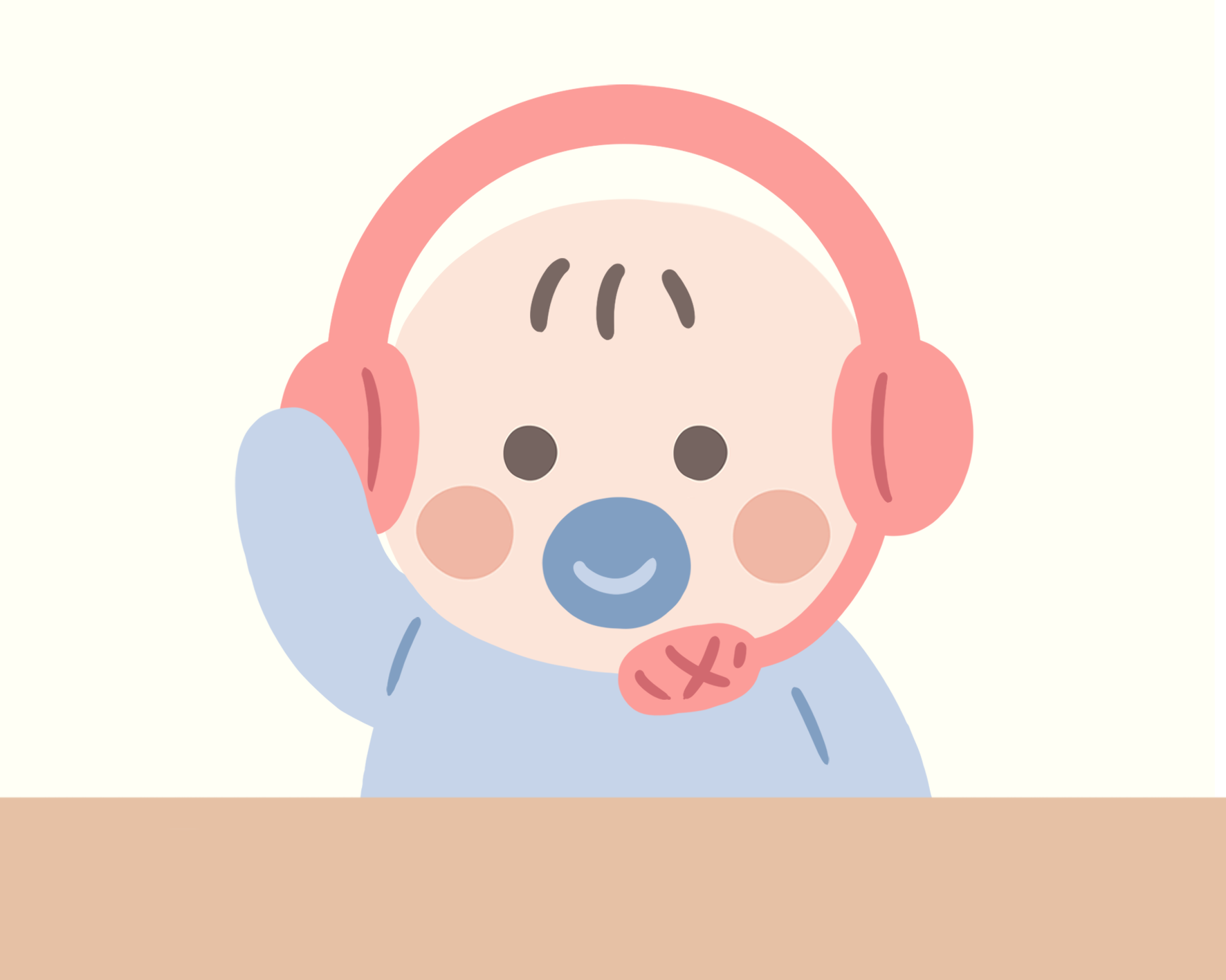
Have questions about your baby's development?
Chat with our baby consultant -
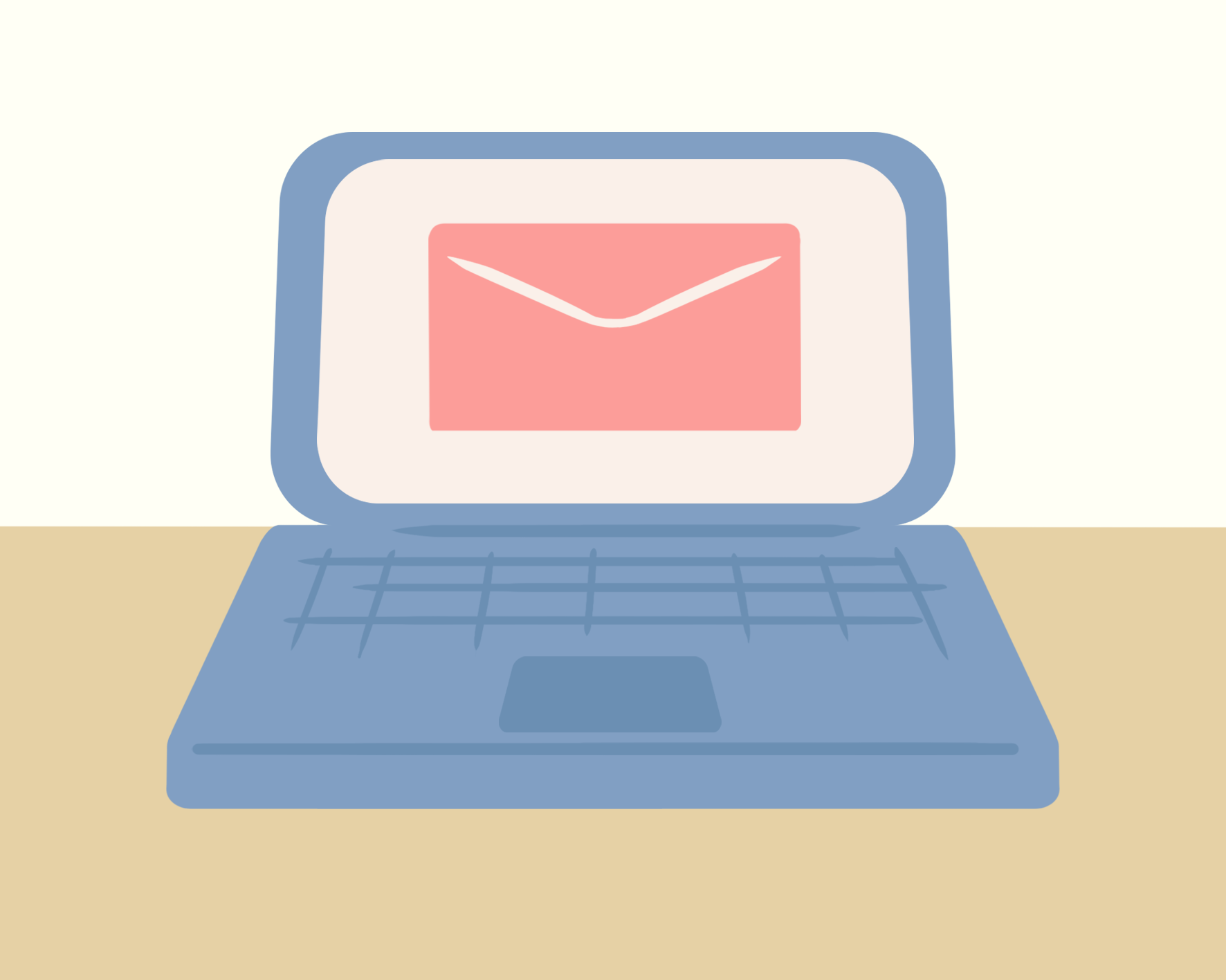
Ready to start your play journey?
Discover our Play program -
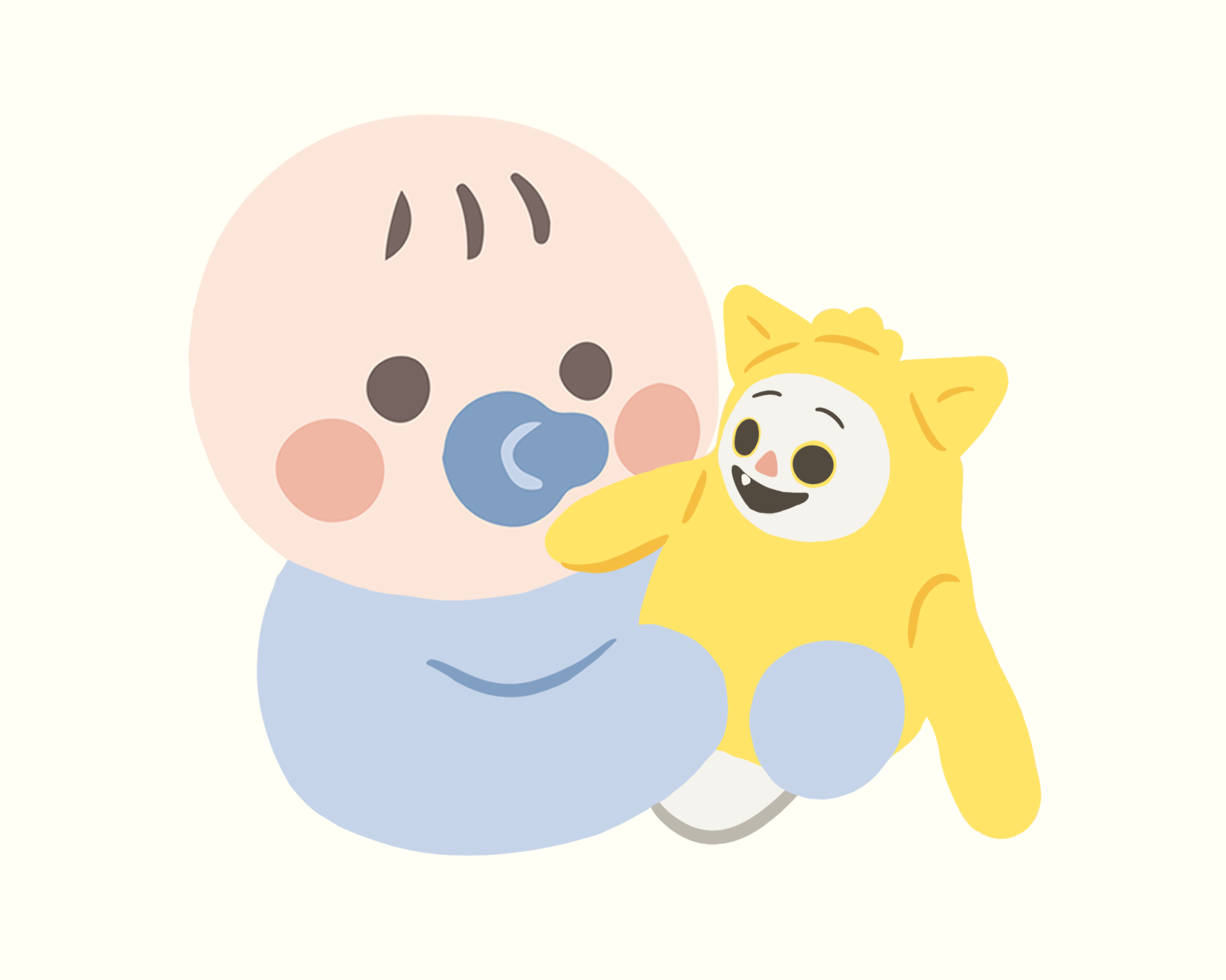
Prefer something for older kids?
Check out our emomo program


